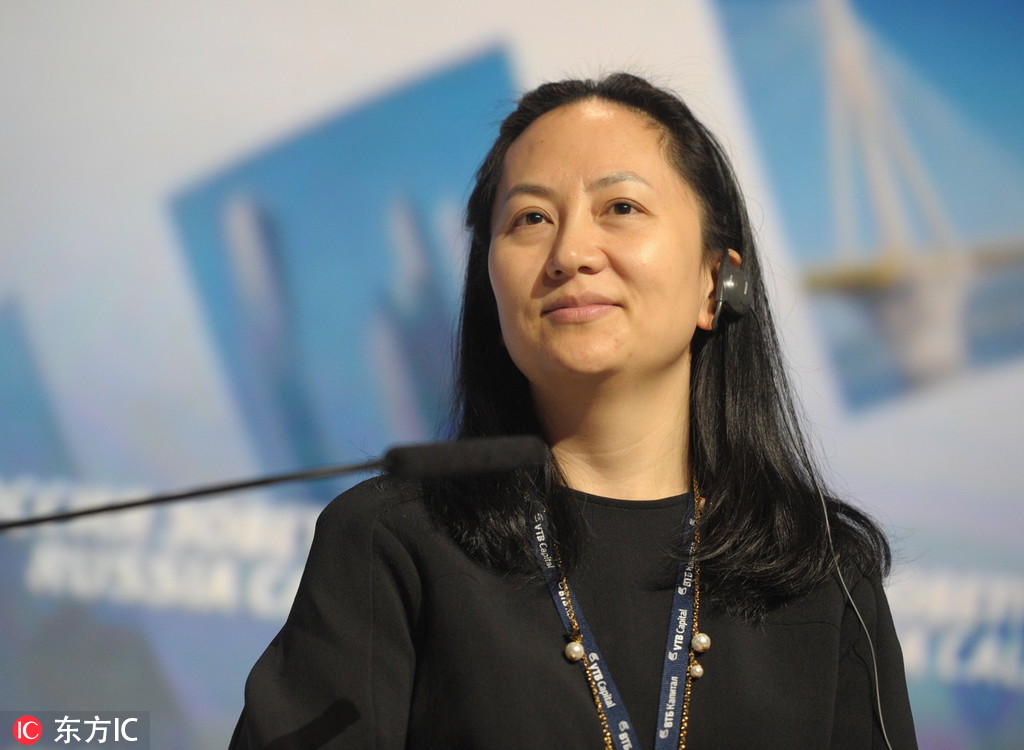Is now the time to drop the charges against Meng Wanzhou?
By Freddie Reidy | CGTN | Updated: 2019-12-15 10:12

Editor's note: Freddie Reidy is a freelance writer based in London. He studied history and history of art at the University of Kent, Canterbury, specializing in Russian history and international politics. The article reflects the author's opinions and not necessarily the views of CGTN.
After a year in detention and restricted bail, Huawei CFO Meng Wanzhou awaits her January 20 extradition hearing, but could these charges be dropped? Meng was arrested on December 7, 2018, while in transit in Canada. Canadian authorities had received an extradition request for Meng from the US Justice Department for alleged defrauding of multiple financial authorities in contravention of US sanctions on Iran.
Friday though, marked the agreement in principle of "phase one" of the Sino–US trade agreement, which is seeking to end the ongoing trade friction between the world's top two economies.
The arrest of Meng is seen by many to have had a decidedly political motive and has involved questionable irregularities in its handling. These irregularities are being challenged by Meng's team in a separate case. Could the thawing of US – Sino relations present an opportunity to further cool relations by dropping charges against Meng?
Many of these questions return to the question of whether Meng's arrest was politically motivated or whether it was a genuine attempt to enforce the sanctions imposed on Iran. Certainly, Meng is not the first Chinese national to be wanted by the US for alleged violations.
Heavy fines have also been enforced on a litany of financial organizations: BNP Paribas, Commerzbank, UBS, Credit Agricole and Deutsche Bank to name but a few. The US again warned in May of this year that organizations trading through Instex – a system, which operates a barter system outside of the US influence mainly in humanitarian goods, could face punishment.
These examples serve as evidence of prior commitment to enforcement. However, these cases have focused on organizations, not individuals, and financial reparation rather than incarceration.
There have also been some mixed messages from the US side as to motive. At the time, US Secretary of State Mike Pompeo had said, "We always have to balance American interests. Any time there's a law enforcement engagement, we need to make sure we take foreign-policy considerations into effect." On the prospect of the US president intervening, he said, "It's totally appropriate to do so. The president's mission is very clear. It's America First." This was in stark contrast to US Trade Representative Robert Lighthizer, who said it was "a criminal justice matter."
In what is hoped by onlookers to be a turning point in relations between the US and China, it would seem prudent to bring to a head the matter of Meng. Chinese Vice Premier Liu He stated an intention to press ahead with phase two of the evolving US – China trade agreement. With Meng's trial slated for January 20, 2020, with a possible conclusion in October of that year, it would seem an unwelcome concurrent story to continued trade talks. The trial would likely delve into American fears of Huawei's activities as well as Meng's likely defense of procedural impropriety and questionable motives with the trial likely developing into a proxy set of trade negotiations.
It would seem a reasonable outcome for charges against Meng to be dropped or a settlement reached, whereby detention before bail could be considered as time served and a financial penalty paid without the necessity for admission of guilt. The financial settlement would be in line with other alleged Iran sanction violations while also saving face as a consequence of a non-admission of guilt.
It is entirely within the gift of President Trump to grant this, but it does present is own problems. Instructing the attorney-general to drop charges would be a highly unusual move and one which the president would be keen to avoid in light of impeachment hearings. There is the possibility though that the president could ask that the extradition warrant be dropped, but charges remain. This would severely impact Meng's ability to resume her position at Huawei and wouldn't clear her name, but it would allow her to return to China.
All these solutions would require political influence in bringing about a rapid conclusion, and in some way, this could be seen as an admission of their initial political motivations. However, with the prize of a trade deal and normalized relations looking more promising, this could be a risk worth taking. A lengthy trial is likely to be embarrassing for all parties with seemingly little merit. Therefore, political pragmatism should prevail.
























